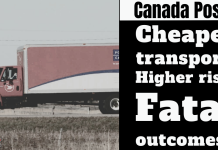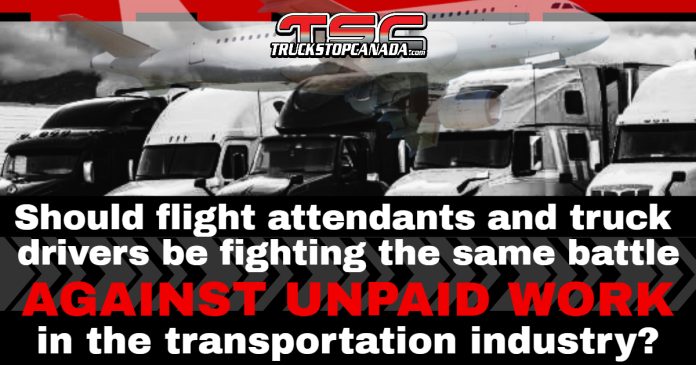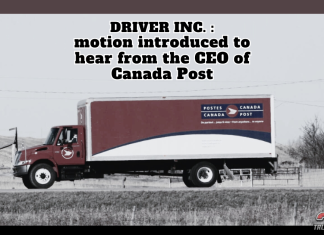The dispute between Air Canada’s flight attendants and the airline has drawn attention to an issue truck drivers have dealt with for years — being required to perform certain duties without pay.
The Canadian Union of Public Employees (CUPE), which represents the flight attendants, has warned it may launch strike action if the company does not change its pay structure to cover all work performed.
In a letter to Employment and Workforce Development Minister Patty Hajdu, Pierre Poilievre urged changes to the Canada Labour Code to ensure that federally regulated airline employees are paid for all hours on duty, not just time spent in the air.
He argued that no other federally regulated worker would accept being on the job without pay.
At the center of the dispute is the “block time” system. Under this model, pay starts when the aircraft doors close and stops when they open at the destination. Tasks such as boarding, deplaning, safety checks, passenger assistance, cabin preparation, and post-flight reporting are excluded from paid time. CUPE estimates that its members perform an average of 35 hours of unpaid work each month, with the burden hitting short-haul crews particularly hard due to multiple daily turnarounds.
A similar reality exists in trucking, especially in the long-haul sector where pay is calculated by the mile. Duties like loading and unloading, waiting at docks, mandatory inspections, fueling, customs clearance, and roadside repairs are often treated as part of the job — without full or any compensation.
Estimates from industry associations and government bodies suggest that some drivers face 10 to 20 hours of unpaid work weekly, roughly double that of Air Canada’s flight attendants.
Canada’s hours-of-service rules clearly define “on-duty” time as any activity required by the employer, including maintenance, inspections, loading, waiting, or yard movements. Yet for mileage-paid drivers, that time often doesn’t appear on a paycheck. The result can be reduced earnings and pressure to make up for lost time on the road — a situation that can compromise safety.
 The economic impact is significant. According to U.S. Department of Transportation figures, delays at loading docks cut long-haul drivers’ annual earnings by an estimated $1.1 to $1.3 billion USD and also reduce carriers’ net income. The DOT also reports that a 15-minute increase in average wait time can raise the likelihood of a crash by 6.2%.
The economic impact is significant. According to U.S. Department of Transportation figures, delays at loading docks cut long-haul drivers’ annual earnings by an estimated $1.1 to $1.3 billion USD and also reduce carriers’ net income. The DOT also reports that a 15-minute increase in average wait time can raise the likelihood of a crash by 6.2%.
While some companies pay for all hours worked, they remain a minority. In an industry already struggling to recruit and retain drivers, unpaid work continues to be a major reason why drivers leave. For some, the “Driver Inc.” model appears to offer a way to boost take-home pay — though in the long run, it carries its own risks.
The flight attendants’ fight is now capturing public attention. For truck drivers, however, the problem is far from new, rooted in practices that date back to the deregulation of the 1980s. Whether this high-profile dispute in aviation can reignite debate over fair pay for all truckers remains to be seen.
With information from Jim Park, Truck News.
Read More :

















